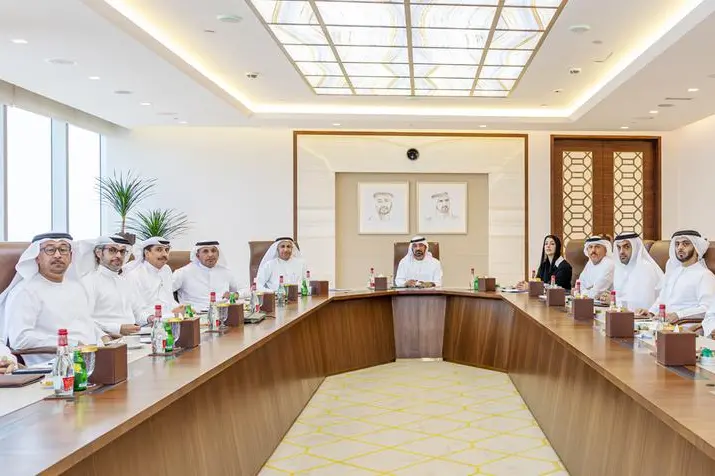PHOTO
Dubai, UAE – The Dubai Free Zones Council, in its 27th meeting headed by His Highness Sheikh Ahmed bin Saeed Al Maktoum, Chairman of the Dubai Free Zones Council, highlighted that, under the vision of His Highness Sheikh Mohammed bin Rashid Al Maktoum, Vice President and Prime Minister of the UAE and Ruler of Dubai, Dubai continues to establish a vibrant, flexible, and sustainable economic model. The DFZ Council noted that this model enhances the role of Dubai’s free zones in economic diversification, development of opportunities, and attraction of foreign direct investment. The Council pointed out that it adopts the latest technological advancements to multiply Dubai’s economy size over the next decade, aiming to place it among the world’s top three economic cities.
The DFZ Council explained that doubling foreign direct investment to AED650 billion by 2033 is a strategic goal of the Dubai Economic Agenda D33. The council members discussed the Free Zones 2030 model that is being developed by the Dubai Free Zones Council to enhance the free zones’ contribution to achieving Dubai’s ambitious objectives through adding value to the socio-economic aspect of Dubai, and by incentivizing international companies and investors to establish and expand their operations from Dubai’s free zones.
The Council was briefed on the new system for approvals in Dubai’s free zones, and its role in accelerating the issuance of approvals in an immediate and timely manner that keeps pace with future work requirements. Moreover, the Free Zone enhanced Business Gateway Portal was presented, facilitating the investor’s journey in obtaining opportunities available to conduct business in free zones’ sectors. In addition, the Council’s official website was discussed, to highlight its role and the strategic initiatives and events.
The council members discussed the new version of the Unified Free Zone Passport, to provide options for investors to expand their businesses and benefit from other free zone facilities in Dubai with simple and flexible procedures, thus achieving ease of doing business among free zone authorities, and fulfilling the requirements of economic accelerators.
The Council underlined the social aspect of empowering UAE nationals and enhancing their presence in the private sector and free zones authorities, noting that Dubai’s free zone-based companies are encouraged to attract qualified Emirati human capital and provide further opportunities to train young Emirati talents across various disciplines and career paths, facilitated by the flexible regulatory frameworks and facilities offered by Dubai’s free zone authorities in order to take advantage of the potentials and competencies of this category. This initiative supports Emiratization targets and achieves comprehensive economic and social development.
The Council discussed the report from Dubai Data and Statistics Establishment, which shows a significant increase in foreign direct investment in Dubai’s free zones, underlining the importance of smooth economic data flow through an accessible and user-friendly dashboard for stakeholders.
The Operations Center of Economic Crimes presented to the Council members the development of working and collaboration mechanisms to exchange and implement best practices to ensure the protection of clients’ funds at free zone-based companies, and enhance the reputation of economic, trade, and banking sectors.



















